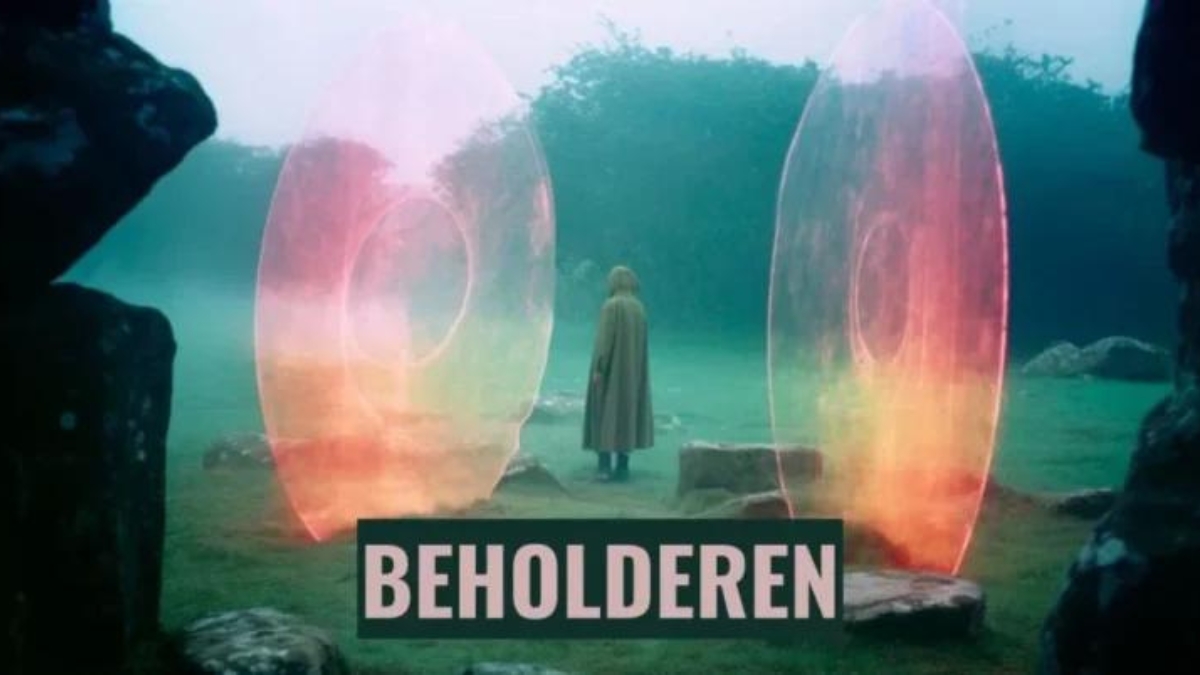The concept of “beholderen,” derived from the word “beholder,” is a fascinating and multi-dimensional idea that encompasses various fields such as philosophy, psychology, art, and even technology. At its core, it refers to the observer, the one who perceives, interprets, and assigns meaning to the world around them. This concept is not just about passive observation but involves an active engagement with the environment and the phenomena within it. In this article, we will explore the different dimensions of beholderen, its significance, and its applications across various domains.
The Philosophical Perspective
In philosophy, the idea of the observer has been a subject of debate for centuries. From ancient Greek philosophers like Plato and Aristotle to modern thinkers like Immanuel Kant and Jean-Paul Sartre, the role of the observer in understanding reality has been a central theme. The famous phrase “beauty is in the eye of the beholder” encapsulates the subjective nature of perception, suggesting that what one person finds beautiful, another might not.
Kant’s philosophy, for instance, posits that our understanding of the world is shaped by the categories of the mind. He argued that we do not perceive things as they are in themselves (noumena) but rather as they appear to us (phenomena) through the lens of our cognitive faculties. This idea highlights the active role of the observer in shaping their own reality.
Psychological Insights
From a psychological standpoint, the concept of the observer is crucial in understanding human behavior and cognition. The field of cognitive psychology, in particular, studies how people perceive, think, and remember information. The observer effect, a phenomenon where the act of observing can influence the behavior being observed, is a well-known concept in psychology.
This effect is particularly evident in social psychology, where individuals might alter their behavior because they know they are being watched. The Hawthorne Effect, named after a series of studies conducted at the Hawthorne Works factory in the 1920s, demonstrated that workers’ productivity increased when they knew they were being observed. This highlights the powerful impact of the observer on human behavior.
Artistic Interpretations
In the realm of art, the beholderen plays a critical role in the interpretation and appreciation of artistic works. Art is inherently subjective, and its meaning can vary greatly depending on the observer’s perspective. Artists often create with the intention of evoking certain emotions or thoughts, but the final interpretation is ultimately left to the beholder.
The theory of reception aesthetics, developed by Hans Robert Jauss, emphasizes the active role of the audience in creating the meaning of a text or artwork. According to this theory, the meaning of an artwork is not fixed but is constructed through the interaction between the artwork and the observer. This interaction is influenced by the observer’s personal experiences, cultural background, and emotional state.
Technological Implications
With the advent of modern technology, the concept of beholderen has taken on new dimensions. In the field of artificial intelligence and machine learning, the observer effect is relevant in the context of data collection and analysis. The presence of an observer, whether human or machine, can influence the data being collected, leading to potential biases.
Moreover, virtual reality (VR) and augmented reality (AR) technologies have introduced new ways of experiencing and interacting with the world. These technologies rely heavily on the observer’s perspective, creating immersive experiences that are shaped by the user’s actions and reactions. In VR, for example, the environment responds to the observer’s movements, creating a dynamic and interactive experience.

Cultural and Social Dimensions
The concept of the beholderen also extends to cultural and social contexts. Different cultures have unique ways of perceiving and interpreting the world, shaped by their historical, social, and environmental factors. The way people understand concepts like beauty, morality, and truth can vary significantly across cultures, highlighting the subjective nature of perception.
In social contexts, the observer plays a crucial role in shaping social norms and behaviors. Social constructivism, a theory in sociology, posits that our understanding of reality is constructed through social interactions. The observer, in this case, is an active participant in the creation of social realities, influencing and being influenced by the social environment.
The Scientific Observer
In the scientific realm, the role of the observer is a fundamental aspect of the scientific method. The process of observation is crucial in gathering data, forming hypotheses, and testing theories. However, the observer effect can also pose challenges in scientific research. In quantum mechanics, for example, the act of observation can influence the state of a quantum system, a phenomenon known as the Heisenberg Uncertainty Principle.
This principle suggests that the more precisely we measure one property of a particle, such as its position, the less precisely we can measure another property, such as its momentum. This has profound implications for our understanding of reality and the limits of scientific observation.
Ethical Considerations
The concept of the observer also raises important ethical considerations, particularly in the context of surveillance and privacy. In a world where technology enables constant monitoring and data collection, the presence of an observer can have significant implications for individual privacy and autonomy.
Surveillance technologies, such as CCTV cameras and internet tracking, create environments where individuals are constantly observed. This can lead to a sense of loss of privacy and autonomy, raising questions about the ethical implications of such practices. Balancing the benefits of observation, such as increased security and data-driven insights, with the rights to privacy and autonomy is a critical ethical challenge.
The Observer in Literature
Literature offers a rich exploration of the role of the observer, often delving into the complexities of perception and interpretation. Narratives frequently employ different points of view, allowing readers to experience the story through the eyes of various characters. This technique not only enhances the depth of the narrative but also highlights the subjective nature of reality.
Fictional works often explore the idea of unreliable narrators, where the observer’s perspective is biased or distorted. This creates a layer of complexity in the narrative, prompting readers to question the reliability of the narrator and seek a deeper understanding of the truth. Such literary techniques underscore the pivotal role of the observer in shaping the story.
Educational Implications
In the field of education, the concept of the observer is integral to the learning process. Teachers, as observers, play a crucial role in assessing students’ progress, identifying learning needs, and providing feedback. The observer effect can influence the classroom environment, as students may alter their behavior in response to being observed by their teachers.
Moreover, students themselves are observers in the learning process, actively engaging with the material, interpreting information, and constructing knowledge. Constructivist learning theories emphasize the active role of the learner in constructing their own understanding, influenced by their experiences and interactions with the environment.
The Observer in Everyday Life
In everyday life, we are constantly in the role of the observer, perceiving and interpreting the world around us. Our interactions with others, our experiences, and our reflections all contribute to our understanding of reality. The concept of mindfulness, often discussed in the context of mental health and well-being, involves becoming a conscious observer of our thoughts and emotions, fostering a greater awareness of our inner experiences.
Mindfulness practices, such as meditation, encourage individuals to observe their thoughts without judgment, promoting a sense of calm and clarity. This practice highlights the power of the observer in shaping our mental and emotional states, demonstrating the profound impact of observation on our well-being.
Conclusion
The concept of beholderen, or the observer, is a multifaceted idea that spans various fields and contexts. From philosophy and psychology to art and technology, the role of the observer is integral to our understanding of reality and our interactions with the world. The observer effect, the influence of the observer on the observed, underscores the active role of the observer in shaping their own reality.
In a world increasingly shaped by technology and data, the ethical considerations surrounding observation and surveillance are more important than ever. Balancing the benefits of observation with the rights to privacy and autonomy is a critical challenge that requires careful consideration.
Ultimately, the concept of beholderen reminds us of the power of perception and interpretation. It encourages us to reflect on our own roles as observers in our personal, social, and professional lives, fostering a deeper awareness of the complexities of reality and the profound impact of observation on our understanding of the world.
YOU MAY ALSO LIKE Exploring Cảbon: A Comprehensive Guide to Carbon










